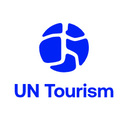Sustainable Tourism Observatories: UNWTO welcomes collaboration between Guanajuato and Paraguay
UNWTO welcomes the agreement reached by the Sustainable Tourism Observatory of Guanajuato (Mexico) and Paraguay to facilitate knowledge and technology transfer. Guanajuato is one of the 16 Observations in the UNWTO Network.
"We praise the agreement signed by the State Secretariat of Tourism of Guanajuato (SECTUR) and the National Tourism Secretariat of Paraguay (SENATUR) as an important step to increase the development of sustainable tourism observatories" said UNWTO Secretary-General, Taleb Rifai.
The State Secretary of Tourism of Guanajuato, Fernando Oliver Rocha said "through this alliance, we aim at fostering public policies with regard to sustainable tourism practices".
The Executive Secretary of Paraguay, Marcela Bacigalupo, recognized the relevance of the work of the UNWTO Observatories and underlined the importance of engaging private sector in sustainable tourism initiatives. "UNWTO has referred to Guanajuato as one of the best Observatories in Latin America, so we are very glad to have undersigned this agreement," she mentioned.
The Tourism Observatory of Guanajuato, the first in Latin American, became a member of the UNWTO International Network of Tourism Observatories in 2014. The first meeting held between SECTUR and SENATUR happened at the UNWTO International Meeting of Spanish Tourism Observatories, held in 2016.
The UNWTO International Network of Sustainable Tourism Observatories (INSTO) is a network of tourism observatories monitoring the economic, environmental and social impact of tourism at the destination level, committed to regular monitoring of tourism in order to better understand destination-wide resource use and foster the responsible management of tourism. There are 16 observatories currently in operation worldwide.
About UN Tourism
The World Tourism Organization (UN Tourism) is the United Nations agency responsible for the promotion of responsible, sustainable and universally accessible tourism.
As the leading international organization in the field of tourism, UN Tourism promotes tourism as a driver of economic growth, inclusive development and environmental sustainability and offers leadership and support to the sector in advancing knowledge and tourism policies worldwide.
Our Priorities
Mainstreaming tourism in the global agenda: Advocating the value of tourism as a driver of socio-economic growth and development, its inclusion as a priority in national and international policies and the need to create a level playing field for the sector to develop and prosper.
Promoting sustainable tourism development: Supporting sustainable tourism policies and practices: policies which make optimal use of environmental resources, respect the socio-cultural authenticity of host communities and provide socio-economic benefits for all.
Fostering knowledge, education and capacity building: Supporting countries to assess and address their needs in education and training, as well as providing networks for knowledge creation and exchange.
Improving tourism competitiveness: Improving UN Tourism Members' competitiveness through knowledge creation and exchange, human resources development and the promotion of excellence in areas such as policy planning, statistics and market trends, sustainable tourism development, marketing and promotion, product development and risk and crisis management.
Advancing tourism's contribution to poverty reduction and development: Maximizing the contribution of tourism to poverty reduction and achieving the SDGs by making tourism work as a tool for development and promoting the inclusion of tourism in the development agenda.
Building partnerships: Engaging with the private sector, regional and local tourism organizations, academia and research institutions, civil society and the UN system to build a more sustainable, responsible and competitive tourism sector.
Our Structure
Members: An intergovernmental organization, UN Tourism has 160 Member States, 6 Associate Members, 2 Observers and over 500 Affiliate Members.
Organs: The General Assembly is the supreme organ of the Organization. The Executive Council take all measures, in consultation with the Secretary-General, for the implementation of the decisions and recommendations of the General Assembly and reports to the Assembly.
Secretariat: UN Tourism headquarters are based in Madrid, Spain. The Secretariat is led by the Secretary-General and organized into departments covering issues such as sustainability, education, tourism trends and marketing, sustainable development, statistics and the Tourism Satellite Account (TSA), destination management, ethics and risk and crisis management. The Technical Cooperation and Silk Road Department carries out development projects in over 100 countries worldwide, while the Regional Departments for Africa, the Americas, Asia and the Pacific, Europe and the Middle East serve as the link between UN Tourism and its 160 Member States. The Affiliate Members Department represents UN Tourism's 500 plus Affiliate members.
Rut Gómez Sobrino
Principal Media Officer
(+34) 91 567 81 60
UN Tourism
